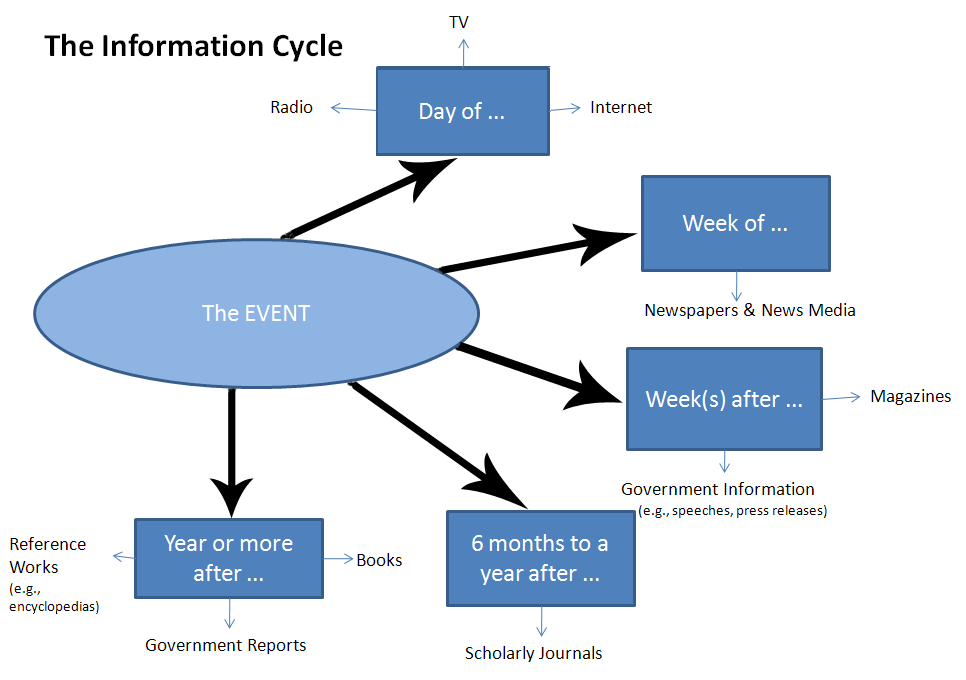
The term "Information Cycle" refers to the way that information is produced and distributed, and how it changes over time. Usually, it's used to describe the progression of media coverage relating to a particular newsworthy event or topic.
Understanding how the information cycle works will help you to know what kinds of information may be available on your topic as you locate and evaluate research sources.
The progression of the information cycle is connected to the amount of time after an event:

Television, Radio & Internet
The information:
Sources/Tools:
For a breaking news story:
To find same-day coverage of past events:
Possible Formats: TV, Radio, or online
Newspapers & Other News Media
The information:
Sources/Tools:
Possible Formats: print or online
Weekly/Monthly Popular Magazines
The information:
Sources/Tools:
Possible Formats: print or online
Government Information
Sources/Tools:
Possible Formats: print or online
Scholarly Journals
The information:
Sources/Tools:
Possible Formats: print or online
Books
The information:
For tips on how to evaluate whether a book is intended for a scholarly or popular audience, check out the Evaluate Print Sources guide.
Sources/Tools:
Possible Formats: print or online
Government Reports
The information:
Sources/Tools:
Possible Formats: print or online
Reference Works:
e.g., Encyclopedias, Dictionaries, Textbooks, Handbooks
The information:
Sources/Tools:
Possible Formats: print or online
Do you need to find scholarly sources to use for your paper, but they are not yet available on your very recent topic? Here are some strategies on how to locate information: